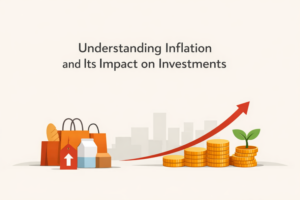Understanding the grandfathering rule, provisions, and its importance

Most of us look forward to the annual Union Budget to know about possible changes to tax slabs or tax exemptions. Changes made to direct tax rates and regulations are of particular interest as taxation changes can change the tax liability of individuals and corporate entities alike. However, some taxation changes come with exemptions where the new rules may not apply to existing assets or transactions made before a specific date. This is popularly known as the grandfather rule or clause.
What is the grandfathering rule in income tax?
Essentially, the grandfather rule allows persons or entities to continue with activities or operations that were approved before the implementation of new tax rules, regulations, or laws. Such allowances can be permanent, temporary, or instituted with limits as specified at the time of declaration or sometime later.
Understanding grandfathering rule in budget
The grandfathering provisions are made to safeguard existing investments and other financial commitments made by individuals, organizations, and corporations. The grandfathering rule ensures that the proposed changes will not impact financial commitments or investments made under current policies.
The grandfathering provision is a tool used in the Union Budget to maintain stability and continuity of current programs and policy while also modifying or launching new ones for the future. It also avoids hurting investors committed to policies based on past benefits and returns.
For example, the government can apply grandfather rules to specific development schemes. Under these rules, all existing applications will continue to enjoy benefits as per the status quo, but new applications will be subject to a different set of rules or receive benefits based on the revised scheme.
The grandfathering rule for long-term capital gains
Taxes are unavoidable, as are changes to taxation provisions over time. While income tax slabs are modified from time to time, grandfather rules are rarely used here as paying income tax is a yearly process. Thus, it does not impact the past financial decisions of an individual or a corporate entity.
Long-term Capital Gains Tax (LTCG) is a type of direct tax that is payable on investments held for a long term, that is over a year. LTCG provisions were modified in the Union Budget 2024-2025.
The new provisions for LTCG made the following changes:
- LTCG for all assets held for the long-term was fixed at 12.5%.
- The holding period for long-term capital gains consideration for all assets was made uniform at one year.
- Indexation benefits for real estate asset sales were removed and the LTCG in real estate asset sales was brought down from 20% to 12.5%.
These rules were proposed to ease taxation calculations and bring uniformity to the Indian taxation system.
For better clarity, we present the example of a real-estate property sale and the implication on the LTCG gains calculation using indexation (as permitted before 2024-2025) and 20% long-term capital gains tax. The second scenario uses 12.5% LTCG (as per the new LTCG rate and no indexation).
| PARTICULARS | DETAILS OF PROPERTY | |
| Sale Price of Property | Rs. 4.5 crore | |
| Sale Year | May 2024(*CII 363) | |
| Purchase Price of the Property | ₹1 crore | |
| Purchase Year | Sept 2001(CII 100) | |
| TREATMENT | BEFORE AMENDMENT | AFTER AMENDMENT |
| Indexed Cost of Acquisition | 1 crore x 363 / 100= ₹3.63 crore | NA |
| Capital Gain Income | ₹4.50 crore – ₹3.63 crore= ₹87 lakh | ₹4.50 crore – ₹1 crore= ₹3.5 crore |
| Tax Rate Applicable | 20% | 12.5% |
| TAX LIABILITY | ₹17.4 LAKH | ₹43.75 LAKH |
*Cost Inflation Index
As per earlier provisions of indexation, the long-term capitals gains tax liability would have been just ₹17.4 lakh, while after amendment, the tax liability increased to an eye-watering ₹43.75 lakh.
Grandfathering rules in long-term capital gains on real estate asset transaction
Many long-term real estate investors were set to have an increased tax liability due to the removal of indexation benefits. After much uproar and extensive discussions in the Lok Sabha, the government decided to bring in the grandfather rules for taxation of real estate sales for calculating the LTCG tax liability.
As per the grandfathering provisions, people who bought property before 23 July 2024 have the option to calculate their LTCG tax liability either through the Old Scheme or New Scheme depending on what is beneficial to them.
Thus, taxpayers can now can now opt to:
- Calculate the Tax on Long-Term Capital Gains @20% after availing of Indexation Benefits (i.e. provisions before amendment)
or
- Calculate the Tax on Long-Term Capital Gains @12.5% without availing of indexation benefits (i.e. provisions after amendment).
The grandfathering provision ensures that real-estate property owners are not adversely impacted by changes in the taxation provisions.
Impact of the grandfather rule
The grandfathering rule in income tax can have the following impact:
- Tax Calculation Flexibility: Investors can opt for the tax regime that is more beneficial to them based on their investment timeline.
- Protection Against New Regulations: Those who invested under previous tax provisions are shielded from immediate financial repercussions due to regulatory changes.
- Preferential tax treatment: While grandfathering provides stability, it can also lead to disparities where some investors benefit from older rules while new investors face stricter regulations.
Importance of the grandfathering clause for investors
The grandfathering rule is beneficial for investors as it provides stability and predictability in their financial planning. Here are some of its key benefits:
- Protection from Sudden Changes: Grandfathering ensures that investments made before the introduction of new regulations remain unaffected, allowing investors to avoid unexpected tax liabilities on gains accrued before the introduction of new rules.
- Encouragement of Long-Term Investment: By safeguarding existing investments under previous tax rates, grandfathering fosters confidence among investors, encouraging them to commit to long-term investment strategies without fear of abrupt regulatory shifts.
- Reduced Tax Burden: Investors benefit from potentially lower tax rates on gains from investments made before the launch of new provisions, which can significantly enhance their overall returns.
- Continuity in Financial Planning: The rule allows investors to pursue their financial strategies based on prior regulations, ensuring that their plans remain viable without requiring immediate adjustments due to new policies.
Overall, grandfathering provisions play a vital role in maintaining investor confidence and promoting stability in investing.
Conclusion
The grandfathering rule is an important provision in India’s budgeting and taxation framework. It helps maintain stability and continuity for existing investments and allows governments to implement necessary reforms without upsetting current stakeholders. Understanding the grandfathering provisions can help investors navigate the taxation system and choose provisions that help them reduce tax liabilities.
Disclaimer
The stocks mentioned in this article are not recommendations. Please conduct your own research and due diligence before investing. Investment in securities market are subject to market risks, read all the related documents carefully before investing. Please read the Risk Disclosure documents carefully before investing in Equity Shares, Derivatives, Mutual fund, and/or other instruments traded on the Stock Exchanges. As investments are subject to market risks and price fluctuation risk, there is no assurance or guarantee that the investment objectives shall be achieved. Lemonn (Formerly known as NU Investors Technologies Pvt. Ltd) do not guarantee any assured returns on any investments. Past performance of securities/instruments is not indicative of their future performance.







